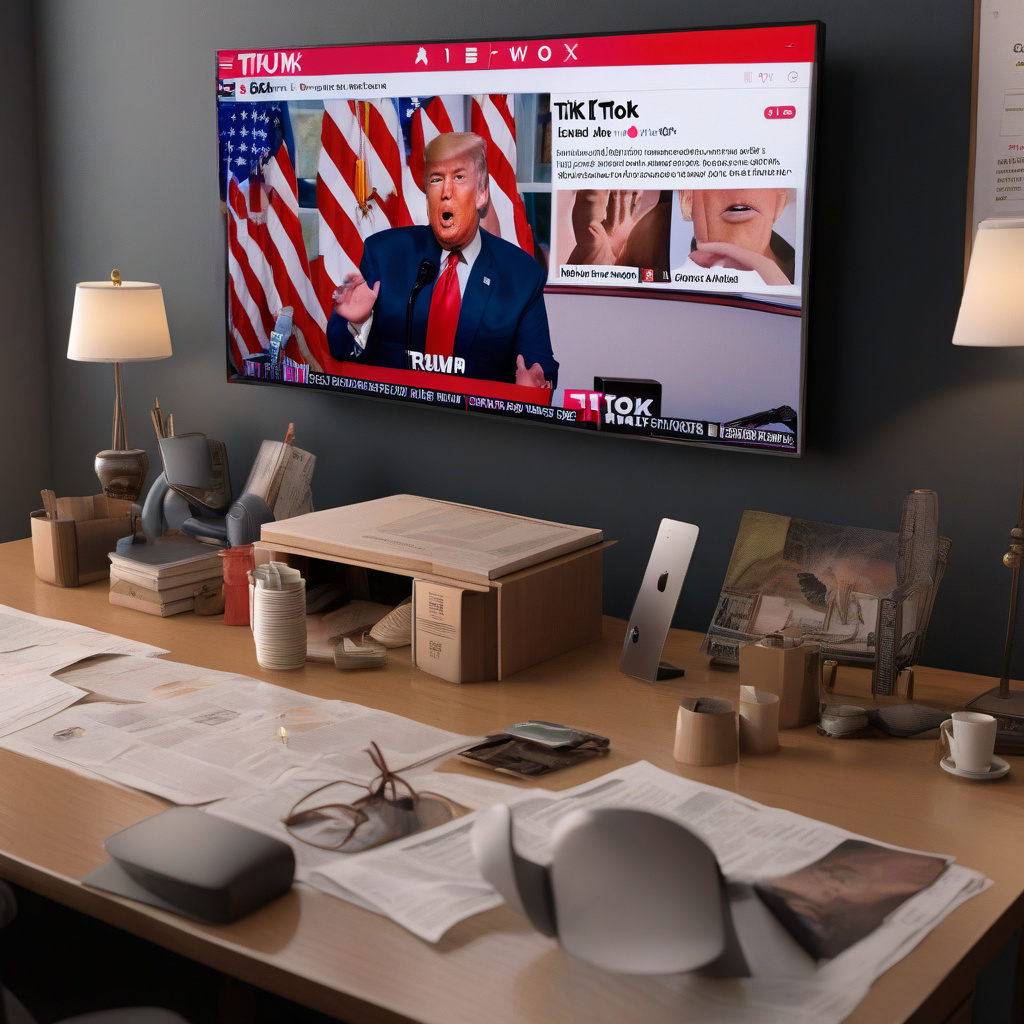TikTok Ban Delayed by Trump Order: The Uncertain Future of the Popular App
Caught between global politics and a massive American user base, TikTok’s fate hangs in the balance as the clock resets once again. The wildly popular social media platform, known for its short-form videos and viral challenges, has been at the center of a contentious debate over national security concerns and data privacy issues. With President Trump signing an executive order to ban TikTok in the United States, only to delay the decision shortly after, the uncertainty surrounding the app’s future has left both users and businesses in a state of limbo.
The Trump administration’s initial push to ban TikTok was based on allegations that the app poses a threat to national security due to its Chinese ownership by ByteDance. Concerns have been raised that the Chinese government could potentially access user data collected by TikTok, raising red flags about the security of American users’ personal information. In response to these allegations, TikTok has vehemently denied any wrongdoing and has taken steps to distance itself from its Chinese roots, including appointing an American CEO and exploring the possibility of selling its US operations to a domestic buyer.
Despite these efforts, the Trump administration remained skeptical, leading to the signing of an executive order that would effectively ban TikTok in the US if it did not find an American buyer by a certain deadline. However, in a surprising turn of events, President Trump decided to delay the ban, citing progress in negotiations between TikTok and potential buyers such as Oracle and Walmart. This eleventh-hour reprieve has bought TikTok some time, but the ultimate decision still hangs in the balance.
For businesses that have leveraged TikTok as part of their marketing strategy, the uncertainty surrounding the app’s future has raised concerns about the potential loss of a valuable platform for reaching younger audiences. With over 100 million active users in the US alone, TikTok has become a powerful tool for brands looking to engage with Gen Z and millennial consumers through influencer partnerships, advertising campaigns, and viral challenges. The prospect of losing access to this large and highly engaged user base has left many businesses scrambling to find alternative marketing channels to fill the potential void left by a TikTok ban.
In light of these developments, businesses that rely on TikTok for their marketing efforts should consider diversifying their digital marketing strategies to mitigate the risk of being disproportionately affected by the app’s uncertain future. Investing in other social media platforms like Instagram, YouTube, and Snapchat can help brands reach a similar demographic of young consumers while reducing their dependence on TikTok. By expanding their online presence across multiple channels, businesses can safeguard against the impact of a potential TikTok ban and ensure that they can continue to engage with their target audience effectively.
As the saga of TikTok’s uncertain future continues to unfold, one thing remains clear: the app’s fate is intricately tied to the complex web of global politics and data privacy concerns. Whether TikTok will ultimately be banned in the US or find a last-minute reprieve through a domestic acquisition remains to be seen. In the meantime, businesses must adapt to the ever-changing digital landscape by diversifying their marketing efforts and staying agile in the face of uncertainty.
TikTok, Trump, Ban, DigitalMarketing, DataPrivacy
